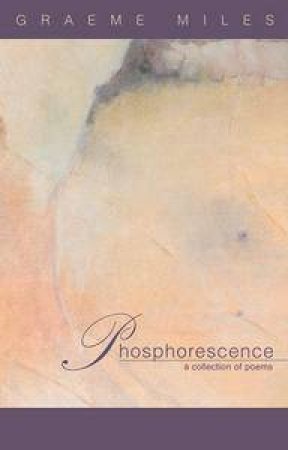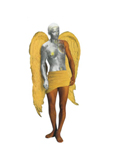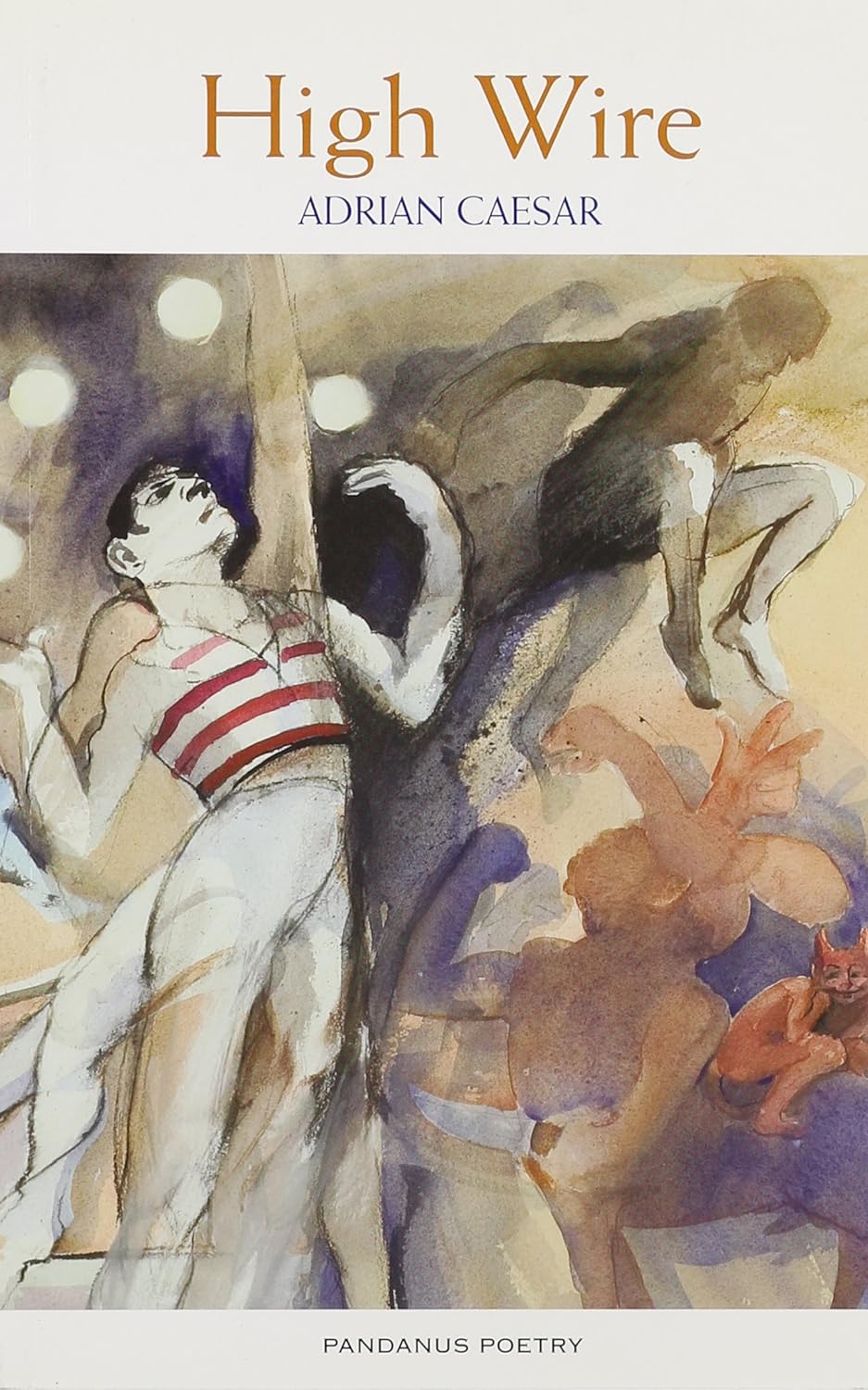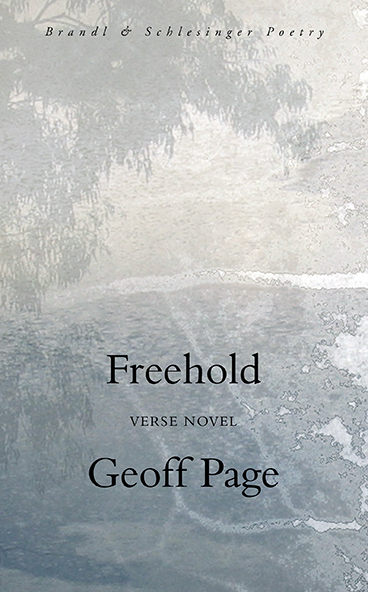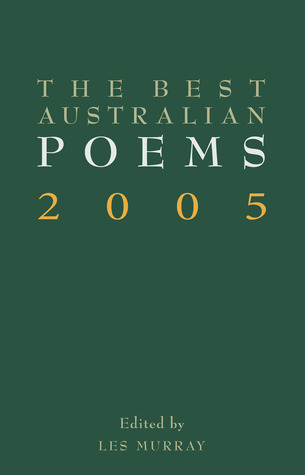Poetry
This is one way of doing it:
No New Thing
No new thing under the sun:
The virtuous who prefer the dark;
Fools knighted; the brave undone;
... (read more)Phosphorescence by Graeme Miles & Peeling Apples by Tessa Morris-Suzuki
The title of Nick Riemer’s first volume of poems is taken from a piece of graffiti in a Sydney church, and the poems therein are aptly replete with a peripatetic, contemporary metaphysical wit. The volume as a whole has a sharp, cultivated air of philosophical enquiry, tending to nihilism, and is shot through with the poet’s continuous testing of the limits of language.
... (read more)This is an auspicious time to reissue a book by a Cypriot-Australian in a bilingual edition. Awareness of Cyprus in Australia, and of Australia in Cyprus, is at unprecedented levels following the spectacular performance in the 2006 Australian Open Tennis Championship of both Marcos Baghdatis and his colourful crowd of supporters from the Cypriot subset of the Melbourne Greek community. Bilingual (even trilingual) editions are the hallmark of Owl Publishing, but this fifteenth volume in its ‘Writing the Greek Diaspora’ series represents a new departure in its inclusion of high-resolution artwork: section four of the collection comprises sixteen photomontages, mostly statuesque combinations of objects and body parts.
... (read more)Okay, I’ll take up Kevin Murray’s challenge in his poem ‘Freelance’ – that the reviewer is ‘a rogue knight / circling other men’s dragons’, though, like Max Richards, I reject Walter Benjamin’s Romantic formulation of criticism as a ‘fulfilment / of the artwork’. Each of these dragons has some fine points; all are modest in their own ways and illustrate Shane McCauley’s gloss of Robert Frost, ‘having the grace / to say that perhaps poetry doesn’t matter very much’. But in different ways, all three focus intently on the compelling significance of the minute, nuanced moments and details as a means of exploring big questions about ageing/mortality; the revelation and casualness of nature; the meaningfulness of history at both personal and public levels; and the functions and significance of art and writing. All are in various ways influenced by both the Romanticism of Wordsworth and Coleridge (particularly the ‘emotion recollected in tranquillity’ aspect) as well as the modernist urban scepticism of T.S. Eliot. These are mannerly dragons. None will scorch the gentil reader-knight. Nor is there a hint of halitosis.
... (read more)Having taught literary studies at the Australian Defence Force Academy, Adrian Caesar is perhaps better placed than most to understand the troubled relationship between power and culture, order and creativity. ‘All Cock Red’, one of the poems in Caesar’s fourth book of poems, High Wire, attends to such a context:
... (read more)Life without poetry is unimaginable to me. Yet my own sense of myself as a poet has always been somewhat intermittent; or, to put it another way, I keep straying then coming back to poetry, like a prodigal child who trusts she’ll be forgiven. Those times when I’m actively engaged in writing poetry have been interspersed with quite long stretches in which I nonetheless work with language on other fronts – studying for a PhD on speech rhythms in an Aboriginal language, learning a new language (Russian being the latest) and, more recently, working on a set of prose translations from the Swiss-born French poet Philippe Jaccottet. I find there’s a wonderful sense of release and revelation in being guided by another’s voice, especially a voice as fluent, emotive and original as Jaccottet’s. My day job as a linguist with a speech-technology firm means that I also deal on a daily basis with language data – at times, two to three languages at once. I find I am a ‘globalist’ when it comes to language, and also, therefore, to poetry. I am just in love with the fact that each language brings with it a new horizon of experience; and each good poem does the same in miniature.
... (read more)Geoff Page’s third verse novel – a form which, if we are to believe the cover puff, he has ‘made utterly his own’ – takes a broad and topical look at the problem of reconciliation in Australia. Reaching back to the 1840s, his narrative opens with an English settler’s account of establishing a successful cattle station on the Clarence River. Edward Coaldale is a liberal with an en-lightened attitude towards the local indigenous people. Employing natives as stockmen and learning their language, he soon earns the suspicion of neighbouring pastoralists, who regard such behaviour as ‘soft’. Prematurely ill with cancer and lacking an heir, Coaldale attempts to bequeath ‘Kooringal’ to the Bundjalung tribe, but is thwarted by regulations insisting the property be left to a single person. He dies leaving it to the talented Jimberoo, who, before long, sells it on to a white family.
... (read more)… although my eyes were open
In ’68 I sported a Panic Button on my blazer –
pushed, it read ‘Things will get worse before
they get worse.’ After the assassinations, I threw
it away. On edge, we were now living on the edge.
... (read more)1
Some day maybe I’ll catch them.
Across the quivering lake they float,
a trio of indistinct shapes,
but they are swans,
that much I know.
... (read more)Annual anthologies of Australian poetry are, or should be, a good way to get an overview of the local poetry scene, as well as an opportunity to greet new poets and to keep in touch with established ones. This selection from more than a hundred poets fulfils that function pretty well, having a range of old and new names, styles and themes, even if the sourcing of the poems does seem weighted in favour of Quadrant, of which Les Murray is poetry editor. It’s the hubris in the title – Best Poems – that makes one cantankerously inclined to point to incomprehensible omissions. Readers with a mind to play that game can scrutinise some of the contenders that Murray passed over by reading Peter Porter’s rival anthology (David McCooey reviewed UQP’s Best Australian Poetry 2005 in the October 2005 issue of ABR). We have to accept, I think, that any anthology cannot help but bear signs of its editor’s preferences and prejudices, and no anthologist can hope to read every poem of the year. What matters, bearing in mind the need to be reasonably representative, is whether the chosen poems are good ones (although Some Good Australian Poems of 2005 might not be a highly marketable title).
... (read more)
